Doctor Who: 60th Anniversary Specials
The Doctor's personal journey gets a new page in this look into the future
How many people can say casually that their favorite TV series is going to its 60th anniversary and still strong as ever? I'm one of them, because Doctor Who is one of the most special shows in the world's (and my) history. Since the first TARDIS materialization in November 23th 1963, our favorite Time Lord visited galaxies, met personalities and saved the day way more times than everyone can count.
Talking personally, I didn't really know what to expect for those 60th Anniversary Specials. The only "modern celebration" we had was 10 years ago, in the marvelous, intricate and already-a-classic The Day of the Doctor. This special was not only incredible as a multi-Doctor episode and a major retcon for the "revival series", but paid homage to so many characters, stories and themes of the past of the show. It was a concept that made sense at the time too, with a well established production team and a veteran face already in the role of The Doctor.
Now looking at retrospect, 2023 had a totally different context. A production era was coming to an end, with Chris Chibnall stepping down from the role of showrunner and the final scenes of Jodie Whittaker as 13th Doctor being shown. Russell T Davies was back with a lot of morale and trust from the BBC and the fans, a huge distribution deal with Disney guaranteed worldwide distribution of the new episodes and even a new face for the Doctor was already there with Ncuti Gatwa. There was no promises of a new DotD, there was no context to a celebration at the same tone, but I think everyone expected it anyway, including me.
This review isn't just about what I liked in those new Doctor Who adventures. But also how my expectations changed, week by week, when looking for answers. Why bring back David Tennant — as the new 14th Doctor and not the 10th? Why bring back Donna Noble, the only companion in the revival series that couldn't have been brought back? Why bring back one of the oldest and forgotten classic villains? It all starts with a spaceship crashing...
Special 1: The Star Beast
I know what was THE BIG THING on this first special, but can I start talking about The Star Beast recognizing it as a Doctor Who Magazine comic story brought to TV? The expanded universe was so important for the history of DW (specially during the 90s hiatus) and having it more present on the main show — in a way that everyone can enjoy — is so cool. With the whole Whoniverse thing going on, it would be nice to have more of these.
Now we can talk about the real star of the episode: Donna Noble is back! I always loved her interactions with the 10th Doctor and her farewell in Journey's End was one of the most emotional scenes in that era. Showing how she continued her life, forming her family and trying to live after donating the Doctor's money gift was really interesting — I don't know if being extremely rich would be a good character for Donna anyway. Shaun Temple is a good husband, Sylvia Noble is still terrified of everything sci-fi to protect her daughter and I can't describe how much I loved Rose Noble, portrayed really well by Yasmin Finney.
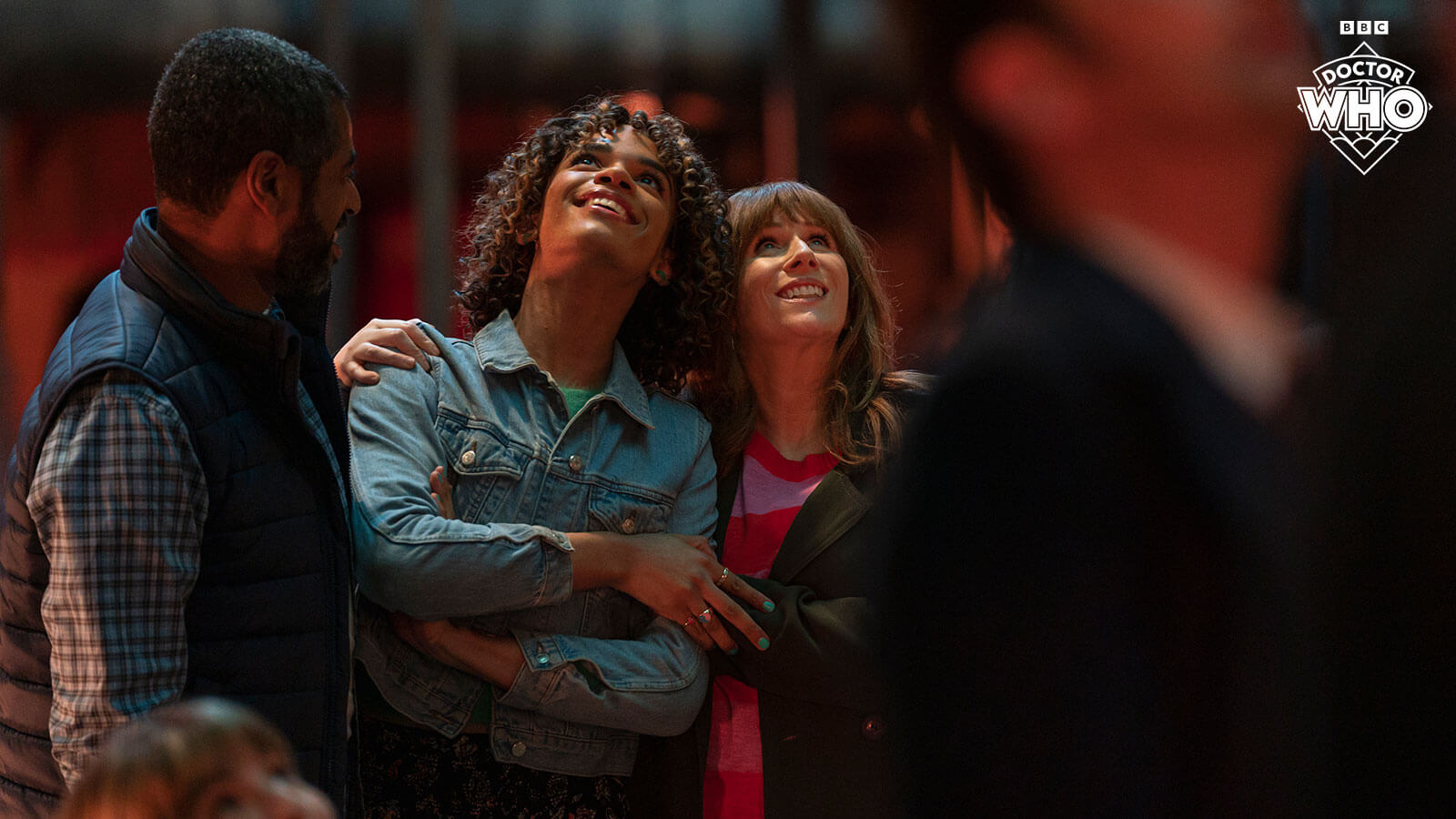
Money problems aside, Donna had everything for a happy family and life, but we Whovians know that there's a problem to be solved. The whole "we can just let it go" don't worked for me, and I really didn't understand yet how the biggest thing of a whole Series was solved in three lines and some VFX. But all that said, the idea of Donna AND Rose sharing the Meta-Crisis and helping each other was marvelous and so beautiful to see. The binary/non-binary reference, Donna's love for her daughter and how Rose can now be truly herself was perfect and a good ending for a frantic adventure. (a little bit of foreshadowing too, huh)
Yes, right? The Star Beast is a hell of an adventure! This furry piece of shit Beep the Meep never got me (but got my wife and her reaction was memorable). A really good villain with a different backstory and powers than just "I'm big and bad" — the psychedelic sun hypnosis was a really cool touch. It's so cool to see how the Meep changes during the Doctor's improvised trial from a puffball to a unsatiable demon. A great monster that couldn't be lost in some old comic pages. As I said, the show needs to use more its expanded universe and if Meep isn't the example for that, I don't know what could be.
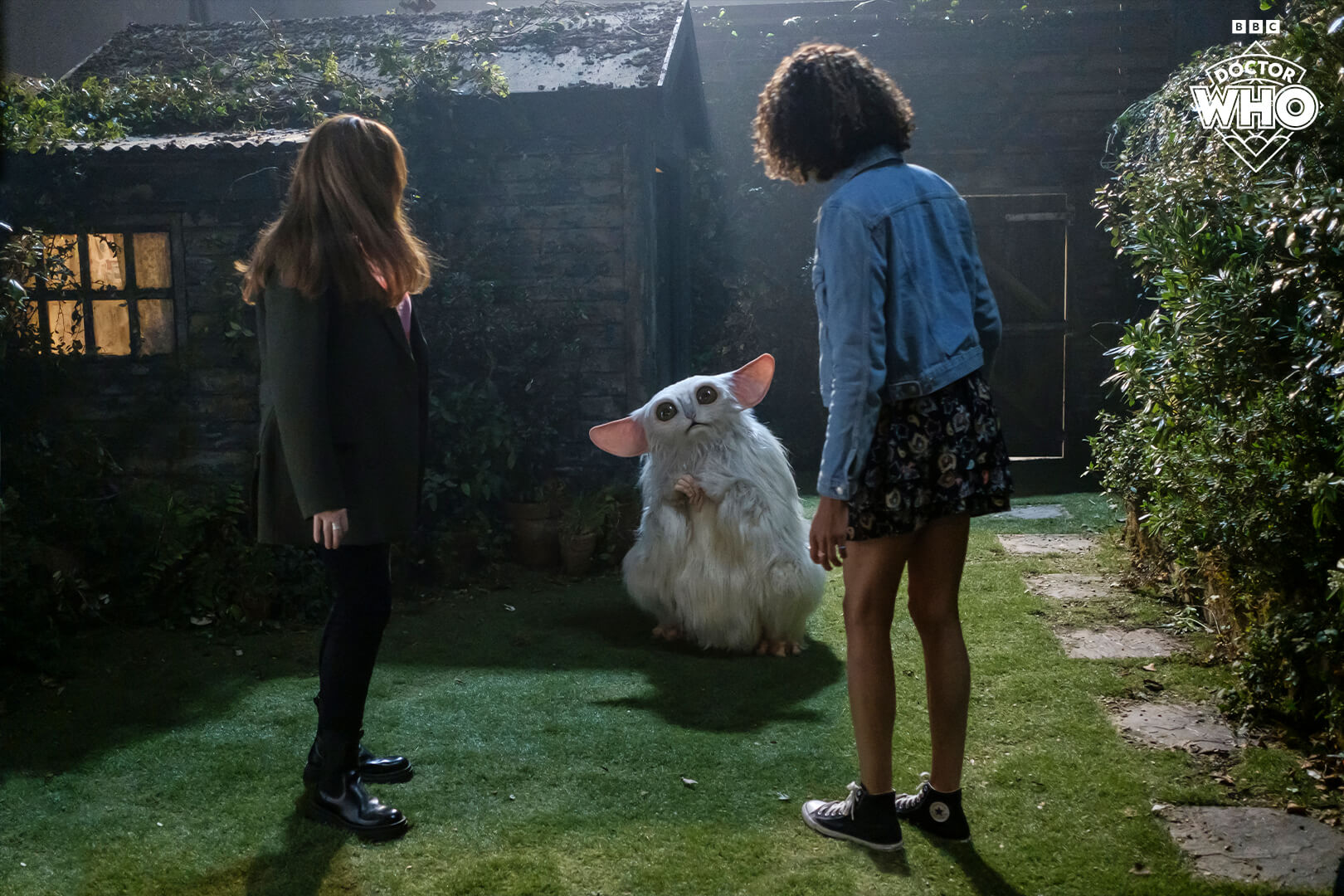
But for everything that happened in this first special, the most important (for me and for my hopeful conclusion of this review) is the Fourteenth Doctor. Yes, it's David Tennant again, and he's a top-tier actor as everyone knows, but I really love how it's a different regeneration of The Doctor. 10th was so much energetic and incisive, jumping from one thing to the other in a blink of an eye. 14th, however, shows how much they grew during the past incarnations: it seems to be a wiser, self-conscious and really traumatized creature.
Like, really, I think that every special on this run has at least one scene of 14th bursting in rage, specially in moments that someone would get hurt or die. The Doctor always reacted to those moments, but it really seems that this incarnation is at the brink of exploding every time. The Doctor isn't well after all he lost (and specially after a part of the universe being destroyed by the Flux). This is the 14th Doctor's personal journey for me, and I'll talk about it in a moment. First, however, we need to do a quick stop at the end of the universe...
Special 2: Wild Blue Yonder
I'm not the biggest fan of horror or suspense movies, so you can imagine that those episodes on Doctor Who weren't in my top lists (yes, I'm talking to all Blink fans right there). Wild Blue Yonder is a weird turn in the middle of those anniversary specials: it's definitely a great episode that even I could enjoy, but doesn't really add a lot to the overarching plot of the 14th Doctor.
With all that said, it was a really interesting mystery from start to finish: those "not-things" were terrifying, using the appearance of The Doctor and Donna to be deformed and scary. I think that the episode wouldn't have worked so well with original faces being copied instead of familiar ones. The tension of not having the TARDIS or the sonic screwdriver (after the materialized walls in Special 1) and having to find a way to get out of the situation was one of RTD best stories to date on the show.
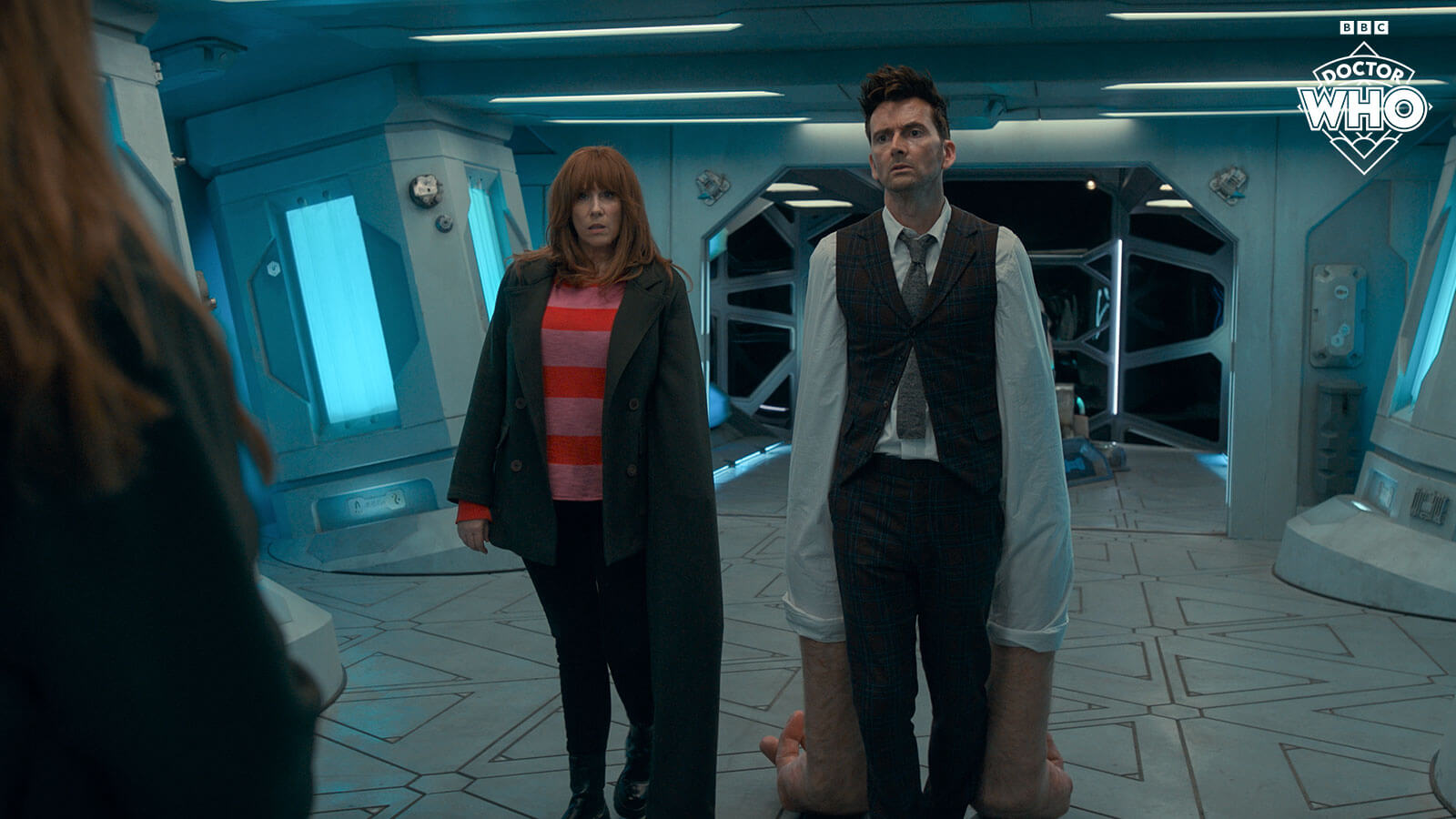
But once more, 14th's overflowing emotions break through again, not only in his now-traditional rage scene, but in the dialog with "not-Donna". As a person that liked the Timeless Child concept from the beginning, it's cool to see that the revelation of past lives is still in The Doctor's mind, as it should be. More than ever and with an unexpected face, The Doctor needs to understand who they are and what's happening.
And there is it for me, not a lot more to say. Not my favorite, although one of the best "horror episodes" in the series. A special recognition for Bernard Cribbins' last scene ever, with one last and emotional appearance of Wilfred Mott, our loved grandpa. And that pun with Isaac Newton was gold, to be fair, I was so proud of those two.
(a digression about The Doctor's personal journeys)
Before I continue to Special 3, I need to digress a little to talk about how I always looked at The Doctor's personal journeys (or identity crises, if you want) in the revival series. I won't claim that I'm the first to think about that, but it's important talk about it to understand why I loved 14th Doctor's regeneration on the first place.
Regardless of era, showrunner or vibe of each series, I always loved how The Doctor was, since the fateful Last Great Time War, in a constant search for answers of who they really are. More specifically, the two keywords for me were "power" and "loss". In each new series, with each new Doctor, we have seen them realizing how much impact their actions had in the timeline — and how this power was not enough to compensate all the people they lost through the years.
Christopher Eccleston's 9th Doctor was the first to face this question, being the one immediately after the war and The Moment. One day, he just was one Time Lord, one creature of a big civilization, known for its influence and power throughout the universe. But now, he is The Last of the Time Lords. In the past, he was forced-regenerated, exiled and summoned by the High Council — now it's just him. It was only one season (so this was elaborated later), but 9th was the Doctor that understood that there was no one to stop him anymore.

David Tennant's 10th Doctor continued that to extreme levels. There wasn't a Doctor in the revival series that needed the companions to stop him more than 10. There wasn't an enemy that he can't defeat with menacing eyes and so much fury, he was THE ONE that destroyed Gallifrey to stop a war. There was only him, powerful than ever, so powerful that he thinks the Laws of Time were his, the Time Lord Victorious. He is also the Doctor that realized how much he lost friends, civilizations and worlds during all his lives. 10th was the Doctor that learned how to be powerful, but couldn't stop the losses with his power.
The debut episode of Matt Smith's 11th Doctor shows exactly who he is. "Hello, I'm the Doctor. Basically, run." is such a powerful line. He knows he's powerful and now feared through the galaxy. The Pandorica Speech, having every one of their enemies just fleeing in fear... The Doctor isn't just "a Time Lord" anymore, he is The Oncoming Storm, a good man going to war. It's even more easy to see when 11th is the most goofy Doctor in the revival series by the pure contrast of those two personas.

At the same time, he was the first to understand he was too powerful. His biggest enemy wasn't Daleks or Cybermen, it was the Silence, creatures whose only goal in life was to silence the Doctor. He had to fake his own death because he's "got too big, too noisy". The Doctor was always sad to lose a companion, but this Doctor tried to retire after losing Amy and Rory. The power was too much, the loss was too. 11th was the Doctor that realized something needed to change.
I think that Peter Capaldi's 12th Doctor had the most explicit personal journey in the revival series. The questioning feelings of his previous incarnation shaped who he is. He constantly questions himself of who he really is, if he is even a good man. Even his face was chosen to remember him about that. "I am an idiot, with a box and a screwdriver, passing through, helping out, learning.". I love how his last words are the essence of what the character is: "laugh hard, run fast, be kind". The Doctor understood himself again.

But I said there were TWO keywords for this journey and we haven't talked about how 12th reacted to the loss (and isn't very well). That speech on The Zygon Inversion shows exactly how much traumatizing the Time War still is for The Doctor. When he loses Clara for the raven, he goes to the extreme of rescuing her on her last breath because he can't face losing one more friend. For God's sake, Heaven Sent isn't just a cinematic masterpiece, but the most intimate episode of Doctor Who ever made. 12th was the Doctor that found their essence again, but accumulate so much trauma and memories.
Jodie Whittaker's 13th Doctor was born in those Capaldi's last words. She was always running, laughing with her fam and being the kindest Doctor in decades. Her personal journey, to me, was more of a test. Imagine finally finding your essence again and then discovering that you had ANOTHER LIVES, way before you imagined. When 13th looks to all the emotional charge of the Timeless Child and her Division's past lives and just buried it inside the TARDIS... she just confirmed who she is. She is The Doctor, the creature they always wanted to be, and it will continue to try. As they said once, "The name you choose is like a promise you make" and she doubled down on it. 13th was the Doctor that confirmed her essence and chose again to be in her promise.

But when she's got to regenerate, although... She not only lost so many friends and had to, one point, live with the guilt of destroying her own planet. Now the Flux also destroyed a huge part of the universe she promised to protect — and even she doesn't recognize or remember, her time at Division was the starting point of it. She knew who The Doctor is, but doesn't knew how to cope with all of the trauma. 14th starts his life with the wisdom and sadness that only someone that lost so much has.
Special 3: The Giggle
OK, it's the end of the recap and we're back to the present to talk about The Giggle, the last 60th anniversary special. And oh boy, this was THE EPISODE. Before entering in the subject of those personal journeys again, I just love it how adventurous and mysterious was the whole thing, even if we already know that the Toymaker was the bad guy behind all. I always love when a real historical thing becomes a plot point, and Stooky Bill — the real-world first object televised in history — would make everyone crazy even without the magic giggle.
Neil Patrick Harris as the Toymaker was completely amazing. I'm always insecure when a big actor comes to do a big part in Doctor Who, but NPH nailed so well that I'm really sad the Toymaker was banished from existence forever. His character is so strange sometimes: it's like the Toymaker is a "chaotic lawful" god, always following the rules of the game, even if this counts against him. From the marionette recap to the Spice Girls incredible entrance, NPH make an already good episode to an unforgettable one.
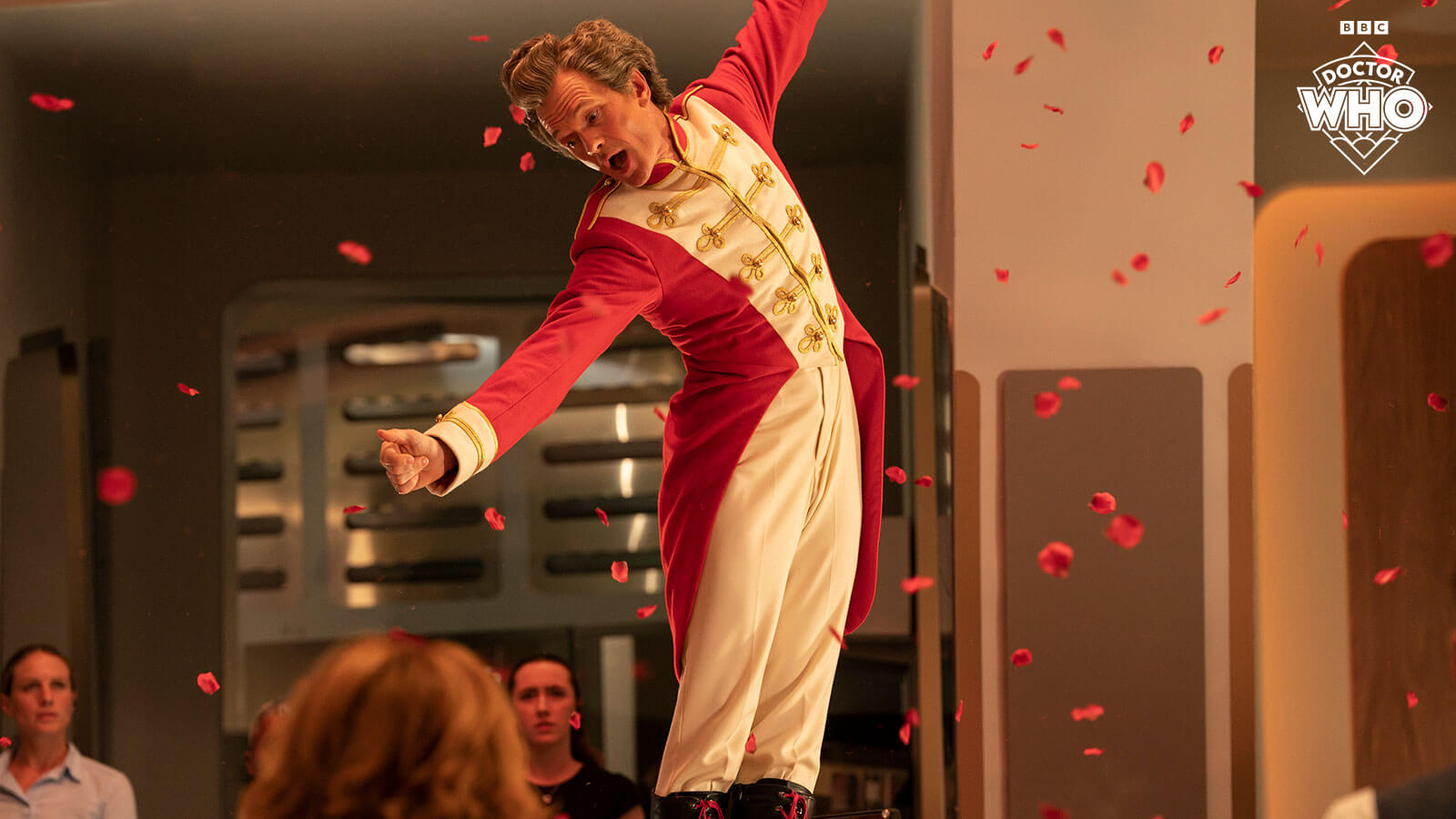
There's a lot of other characters really well presented too, what is a contrast of oh-my-God-this-is-one-more-thing-in-this-convoluted-story style of Chibnall during the 13th era. Kate Stewart is always badass (with an amazing, vulnerable performance by Jemma Redgrave), Melanie Bush is back and I already wanted more of companions in UNIT's paycheck and I'm really curious by the new scientific advisor Shirley Anne Bingham and what more she can bring to the show.
Yeah, The Giggle would be a great episode already, but we get it. A myth becoming reality by the Toymaker, we have the first (and probably only one) bi-generation in the history of Doctor Who! Instead of just a new face, The Doctor divided in two, granting us the first peek (and what a peek!) at Ncuti Gatwa's 15th Doctor. He's frantic, he's ready to take on the universe and he's strangely confident. Facing the Toymaker or talking with his past self, he seems to know more than we generally expect from a post-regeneration Doctor.
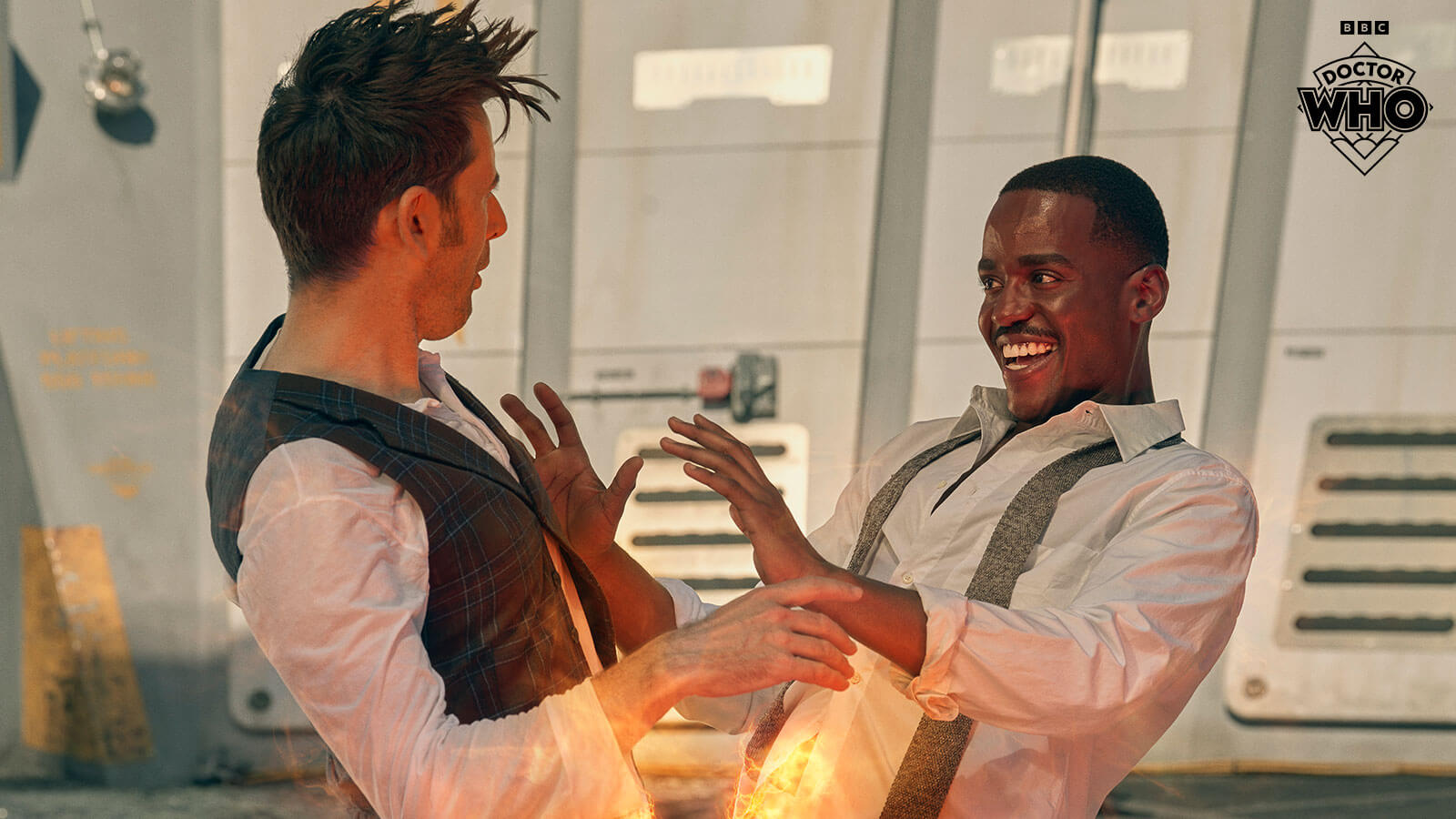
But the most beautiful part of this special, and the true story arc for the specials, is 14th Doctor's personal journey. As I said before, 13th was tested and confirmed her identity and values as The Doctor, but all the memories they had... was too much. It was so consistent in those specials: 14th was always in an emotional burnout, about to explode. Every provocation about his past, seeing the worst part of humanity wide open by the Toymaker. The Doctor couldn't do anymore. He needed help, and he chose the face who get most traumas to seek that help.
It was so precious seeing how the two Doctors interacted. 15th wasn't just kind to his past self, he was the only that understood. The only one who could know all the pain and loss he suffered, and how the sole thing that he could do was move forward, never looking back. For the first time in years, the 15th Doctor was not afraid of looking to the past. He was there to shelter themselves, to give a hug, to accept a creature that did so much and lost even more.

"I'm fine because you fix yourself. We're Time Lords. We're doing rehab out of order." This was the key dialogue for me. The trust in the 15th's voice when saying that showed to me the true meaning of the bi-generation. Yes, they could bring Tennant back if they can (and, to be fair, nothing ever stopped BBC to do that, all the Doctors are traveling in space-time anyway). But the bi-generation allows us to see The Doctor heal. Look into their past, understand what happened to all of his lives, the ones that they loved (and the ones that they lost). And, of course, without having a timejump or a hiatus, it's a time travel show! The 15th Doctor is not "a clone", he is The Doctor, but healed. 14th was the Doctor that finally stopped to face his past and his loss.
And seeing him, with his new family, just laughing and looking forward to retire, it's so meaningful and amazing. For all The Doctor did for the universe, he deserved some peace.
A new Doctor for a new future
Yeah, we didn't get a new "Day of the Doctor" after all. And a lot of people would say the specials were not "commemorative enough" — and they are also right. I would love to have seen a more cameo-filled episode instead of Wild Blue Yonder, for example. But, having watched all three, I think I can understand what was the goal of all of this.
The Day of the Doctor was all about celebrating the past. 50 years of a TV show that is still running, in the same continuity, is amazing and worth celebrating, of course. Those 60th anniversary specials were, instead, about preparing the future. Using figments of the past, stories that needed a conclusion, to help The Doctor do one thing that he never would do normally. 14th is fixing, so 15th can already be on Christmas, being The Doctor we know and love, and we will know even more and love even more.
The first time we got a reboot, its motor was a big war, with a lot of death, destruction and trauma. But today, the new generation of Doctor Who, the one that will travel through space and time for next 20 years, is different. The new Whoniverse starts with healing, kindness and maturity — and I'm waiting to grow, change and learn with it again, as I did in my childhood.
